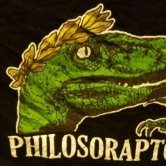-
Posts
14,738 -
Joined
-
Days Won
203
Content Type
Profiles
Forums
Calendar
Gallery
Everything posted by Rocky
-

Legacy of the Way Corps Principles
Rocky replied to Gilligan's topic in Spirit and Truth Fellowship International
I'm confident that it's difficult to develop a robust understanding today of whatever discussions, however amicable or not, took place 10 years ago based solely on the postings on GSC. -

Legacy of the Way Corps Principles
Rocky replied to Gilligan's topic in Spirit and Truth Fellowship International
That was nearly ten years ago. -

Anniverary Weekend: The Conjuring of the Cult's Ghost
Rocky replied to skyrider's topic in About The Way
-

Anniverary Weekend: The Conjuring of the Cult's Ghost
Rocky replied to skyrider's topic in About The Way
Well, that and conjuring up the fear of death resulting from "leaving the Household." -
Probably a good idea at this stage. And yes, many of us know of your uncle. It sounds like you have quite a story to tell. Btw, the weird name thing kinda keeps google from cataloging posts about specific individuals.
-

Leah Remini/ Scientology and similarity to TWI
Rocky replied to Thomas Loy Bumgarner's topic in About The Way
Verbose grandiosity of a narcissist! (not you) -

Leah Remini/ Scientology and similarity to TWI
Rocky replied to Thomas Loy Bumgarner's topic in About The Way
Irving Fryar also played for the NE Patriots but that wasn't the only team he was on during his NFL career. -

Leah Remini/ Scientology and similarity to TWI
Rocky replied to Thomas Loy Bumgarner's topic in About The Way
Tony Collins and Irving Fryar. Also MLB player Tony Phillips. -
Just curious, did you sell any publications containing those ideas you got from other sources... you know, without crediting said other sources?
-
The author of that article could have benefited greatly from consultation with a copy editor. There are several typographical errors. Also, though there are several links to allegedly supporting material, the one I looked at (related to music) wasn't necessarily authoritative. Further, with popular music involving sometimes significant sums of money, litigation can be involved and whether or not the litigation was successful would color claims of plagiarism one way or another. Thanks, Bolshevik, for the food for thought but I'm skeptical.
-

Leah Remini/ Scientology and similarity to TWI
Rocky replied to Thomas Loy Bumgarner's topic in About The Way
Twi went after celebs, including actors/actresses but even more so with professional athletes. The just didn't snag m/any big names. NFL stars Tony Collins and Irving Fryar and MLB utility player Tony Phillips. However, PFLAP didn't keep those three out of trouble. -
And batting .191. and going 0 for 3 against the Dbacks last night.
-
YIKES!
-
oops, double post.
-
I've got my eye ON you!
-
Yeah the artist referenced by Twinky's comment is the lord and master for the Facebook way corpse group. He still practices face melting as well as marking/avoiding aka banishment.
-
Welcome Tessie. I hope you find Greasespot satisfying. There's plenty to read from plenty of people. Take care.
-

Leah Remini/ Scientology and similarity to TWI
Rocky replied to Thomas Loy Bumgarner's topic in About The Way
Over the weekend, the actress and former Scientologist received the Creative Arts Emmy award for best informational series or special for her A&E series, “Leah Remini: Scientology and the Aftermath.” The actress thanked mom Vicki, who had brought her daughter into the Church of Scientology when Remini was a child. “Mom, thank you. You are officially forgiven for getting us into a cult,” the former “King of Queens” star quipped in accepting the Emmy, according to Deadline. Her mother was in the audience to celebrate her daughter’s win, the media outlet reported. Remini dedicated her Emmy to the “brave ones,” the former Scientologists who told their stories throughout the series. http://www.huffingtonpost.com/entry/leah-remini-scientology-mother-emmy_us_59b56e9de4b0b5e53106d1e6 -
He didn't repent. His apology was perfunctory (hasty and superficial). He regrets getting caught.
-
Batten down the hatches!
-
Just to confirm the site is paid up through July 2018, right? :)
-

Leah Remini/ Scientology and similarity to TWI
Rocky replied to Thomas Loy Bumgarner's topic in About The Way
Undertow -
Tim Stiles is on Facebook.
-
Why do you have to try to expose a GSC poster's identity... if you really do wish him well in his life?
-

TWI and The Bible... Is that really the answer to gaining "LIFE".
Rocky replied to rodneyomccarthy's topic in About The Way
So much for what the scriptures say about the bible... "Lost for 1,500 years, the fourth-century commentary by African-born Italian bishop Fortunatianus of Aquileia interprets the Gospels as a series of allegories instead of a literal history. "Dr Hugh Houghton, of the University of Birmingham, who translated the work, said it was an approach which modern Christians could learn from. "The find adds weight to the idea that many early biblical scholars did not see the Bible as a history, but instead a series of coded messages which represented key elements of Christianity, he said."


